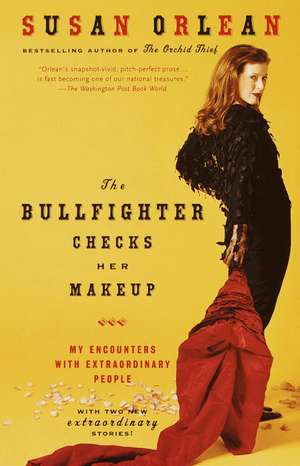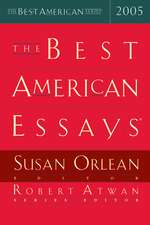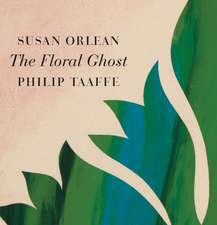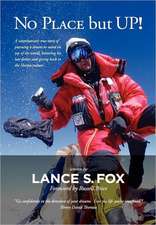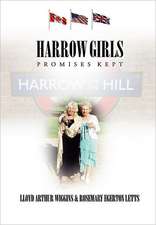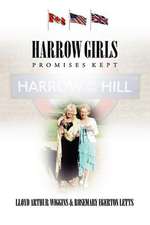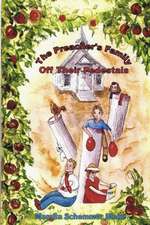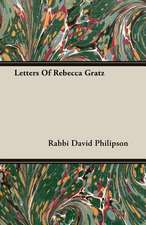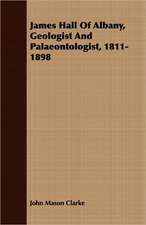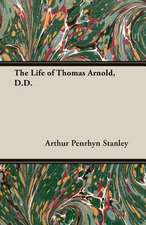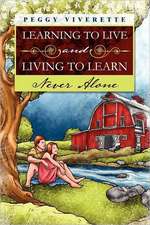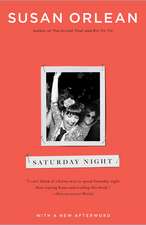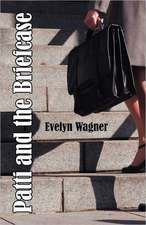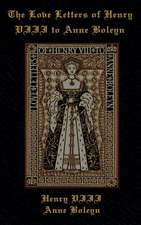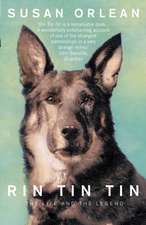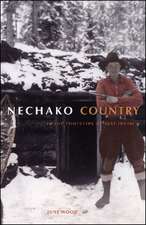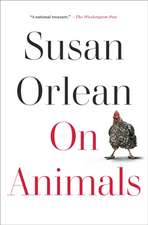The Bullfighter Checks Her Makeup: My Encounters with Extraordinary People
Autor Susan Orleanen Limba Engleză Paperback – 31 dec 2001
Passionate people. Famous people. Short people. And one championship show dog named Biff, who from a certain angle looks a lot like Bill Clinton. Orlean transports us into the lives of eccentric and extraordinary characters—like Cristina Sánchez, the eponymous bullfighter, the first female matador of Spain—and writes with such insight and candor that readers will feel as if they’ve met each and every one of them.
The result is a luminous and joyful tour of the human condition as seen through the eyes of the writer heralded by the Chicago Tribune as a “journalist dynamo.”
Preț: 108.09 lei
Nou
Puncte Express: 162
Preț estimativ în valută:
20.69€ • 22.48$ • 17.39£
20.69€ • 22.48$ • 17.39£
Carte disponibilă
Livrare economică 31 martie-14 aprilie
Preluare comenzi: 021 569.72.76
Specificații
ISBN-13: 9780375758638
ISBN-10: 0375758631
Pagini: 336
Dimensiuni: 133 x 206 x 19 mm
Greutate: 0.26 kg
Ediția:Trade Paperback.
Editura: Random House Trade
ISBN-10: 0375758631
Pagini: 336
Dimensiuni: 133 x 206 x 19 mm
Greutate: 0.26 kg
Ediția:Trade Paperback.
Editura: Random House Trade
Notă biografică
Susan Orlean has been a staff writer at The New Yorker since 1992. Her articles have also appeared in Outside, Rolling Stone, Vogue, and Esquire. She is the author of Saturday Night, a New York Times Notable Book of 1990, which, in the words of Entertainment Weekly, "calls to mind Damon Runyon, Evelyn Waugh, and screwball comedy." She lives in New York City.
Extras
I always wanted to be a writer. In fact, as far as I can recall, I have never wanted to be anything other than a writer. In junior high school I took a career guidance test that suggested I would do well as either an army officer or a forest ranger but I didn't care: I wanted only to be a writer, even though I didn't know how you went about becoming one, especially the kind of writer I wanted to be. I didn't want to be a newspaper reporter, because I have never cared about knowing something first, and I didn't want to write only about things that were considered "important" and newsworthy; I wanted to write about things that intrigued me, and to write about them in a way that would surprise readers who might not have expected to find these things intriguing. During college I kept a journal with a section called "Items Under Consideration," which was a meditation on what I was going to do once I graduated. It was filled with entries like this:
What to Do/Future Plans
Why I Should Go into Journalism
Pro:
Fun!
Interesting!
Writing!
Activity and excitement!
Good people (maybe)
Social value
Con:
No jobs available
Have to live in NYC for serious work on a magazine
Talent is questionable
Except for some interstitial waitressing, my first job out of college was writing for a tiny magazine in Oregon, and I made it clear at the interview that I would absolutely, positively die if I didn't get hired. After all, I knew being a writer would be "Fun! Interesting!" and full of "Activity and excitement!" I had no experience to speak of, except that I had been the editor of my high school yearbook. When I went to the job interview in Oregon, I brought a copy of the yearbook and a kind of wild, exuberant determination, which was the only thing that could account for my having gotten the job.
What I wanted to write about were the people and places around me. I didn't want to write about famous people simply because they were famous, and I didn't want to write about charming little things that were self-consciously charming and little; I wasn't interested in documenting or predicting trends, and I didn't have polemics to air or sociological theories to spin out. I just wanted to write what are usually called "features" — a term that I hate because it sounds so fluffy and lightweight, like pillow stuffing, but that is used to describe stories that move at their own pace, rather than the news stories that race to keep time with events. The subjects I was drawn to were often completely ordinary, but I was confident that I could find something extraordinary in their ordinariness. I really believed that anything at all was worth writing about if you cared about it enough, and that the best and only necessary justification for writing any particular story was that I cared about it. The challenge was to write these stories in a way that got other people as interested in them as I was. The piece that convinced me this was possible was Mark Singer's profile of three building superintendents that ran in The New Yorker when I was in college. The piece was eloquent and funny and full of wonder even though the subject was unabashedly mundane. After I read it, I had that rare, heady feeling that I now knew something about life I hadn't known before I read it. At the same time, the story was so natural that I couldn't believe it had never been written until then. Like the very best examples of literary nonfiction, it was at once familiar and original, like a folk melody — as good an example as you could ever find of the poetry of facts and the art in ordinary life.
My first feature for The New Yorker was a profile of Nana Kwabena Oppong, a cabdriver in New York City. Nana's life as a cabbie was the embodiment of ordinariness, but he also happened to have the extraordinary honor of being the king of his tribe, the Ashantis, in the United States. His life seesawed between its two extremes, between the humdrum concerns of daily life, like doing maintenance on his cab and prodding his kids to do their homework and looking for a new apartment, and his royal concerns, like resolving property disputes and officiating at Ashanti ceremonies and overseeing the transportation of deceased members of the tribe back to Ghana so they could be buried in their motherland. I spent months on the story. When I would get together with him, I never knew whether I was meeting with Nana the cabdriver or Nana the king. By the end of our time together, of course, I realized that there was no real difference, and that the marvel was watching him weave together these strands of his life.
Just before I profiled Nana, I had been asked by Esquire to write a piece about the child actor Macaulay Culkin, who was ten years old at the time. I don't rule out doing celebrity profiles, but I wasn't in the mood to do one right then and I wasn't very interested in Macaulay Culkin. Then my editor told me that he was planning to use the headline the american man, age ten. On a whim, I told my editor that I would do the piece if I could find a typical American ten-year-old man to profile instead — someone who I thought was more deserving of that headline. It was an improbable idea since they had already photographed Macaulay for the cover of the magazine, but my editor decided to take me up on it. I was completely dismayed. First of all, I had to figure out what I'd had in mind when I made the suggestion. Obviously, there is no such thing as a "typical" boy or girl, and even if I could establish some very generous guidelines for what constitutes typicalness — say, a suburban kid from a middle-class family who went to public school and didn't have an agent, a manager, or a chauffeur — there was the problem of choosing one such kid. I considered going to a shopping mall and just snatching the first ten-year-old I found, but instead I asked my friends to ask their friends if they knew anyone with a ten-year-old, and eventually I got the name of a boy who lived in the New Jersey suburbs. I liked Colin Duffy right away because he seemed unfazed by the prospect of my observing him for a couple of weeks. He was a wonderful kid, and I still marvel at how lucky I was to have stumbled on someone so endearing, but the truth is that if you set out to write about a ten-year-old boy, any boy would do. The particulars of the story would have been entirely different with a different boy, but the fundamentals would have been the same: An ordinary life examined closely reveals itself to be exquisite and complicated and exceptional, somehow managing to be both heroic and plain.
There are so many things I'm interested in writing about that settling on one drives me crazy. Usually it happens accidentally: Some bit of news will stick in my mind, or a friend will mention something, and suddenly a story presents itself or a subject engages me. For instance, I decided to profile Felipe Lopez, a star high school basketball player, because I had stumbled across a headline in the paper one day that said christ the king aims for revenge. It was one of those headlines that stops you dead in your tracks, and even after you figure it out, you can't quite get it out of your mind. Christ the King turned out to be a Catholic school in New York, and its basketball team was bent on avenging an embarrassing loss to another school. Before reading the story I hadn't realized that there was a Catholic basketball league in the city, and that alone got me interested. But what really hooked me was remembering how ardent people are about high school sports — I guess it was the fierceness of that headline — and that led me to thinking about how a kid who was really good at some sport must lead a very unusual sort of life, and then I started wondering who was the best high school basketball player in the country. I could only hope and pray that he went to a school as evocatively named as Christ the King. As it turned out, Felipe didn't — he went to a school with the very homely name of Rice — but he did live in New York, not far from my apartment, and, like Colin, was happy to have me follow him around.
Some of these stories are about people who are well known, such as the designer Bill Blass and the Olympic figure skater Tonya Harding, and almost all of these were suggested to me rather than having been my own ideas, which tend to be about people who are not yet well known nor ever will be. Bill Blass was suggested to me by Tina Brown, who was editor of The New Yorker at the time, and I accepted the assignment when I found out that he still made personal trunk show appearances in small cities around the country, even though most people at his level in the fashion world had long since given it up. I loved the idea of profiling a world-class designer not in New York or Paris or Milan but in Nashville, at a ladies' luncheon in the middle of the week. Writing about Tonya Harding was a different kind of challenge. She had been in the news constantly after the attack on Nancy Kerrigan, and it was hard to imagine that there was a story left about her that hadn't already been told and retold. But I had noticed that all the newspaper stories mentioned she was from Portland, Oregon, which wasn't true: She was from the exurbs twenty miles or so outside of Portland. Because I used to live in Oregon, I knew the two places were entirely different, even antithetical, and I was convinced that Tonya Harding made a lot more sense if you understood something about where she was raised. I assumed that I wouldn't get to interview her when I went out to Oregon, so I interviewed people who cared about her and who lived in her town. It was a little like studying animal tracks and concluding something about a creature from the impression it has left behind. I still wish I could have talked to her, but maybe that will be another story another time.
I love writing about places and things almost as much as I like writing about people, and I probably spend half of my time on stories that are primarily about a particular landscape or environment or event. For this book, though, I decided to gather together only pieces that center on people, to present an assembly of the various characters I've profiled so far in my career. There is nothing harder or more interesting than trying to say something eloquent about another person and no process is more challenging. It's much easier to, say, climb Mount Fuji and write about the experience (which I've done) than it is to hang around with a ten-year-old boy or an unemployed Hollywood agent or a famous fashion designer trying to be both unobtrusive and penetrating, and then try to make some sense out of what I've seen. It's just that people are so interesting. Writing about them, in tight focus, is irresistible. I am sure that I will continue doing profiles as long as I'm still writing, stepping in and out — lightly, I hope — of other people's lives.
What to Do/Future Plans
Why I Should Go into Journalism
Pro:
Fun!
Interesting!
Writing!
Activity and excitement!
Good people (maybe)
Social value
Con:
No jobs available
Have to live in NYC for serious work on a magazine
Talent is questionable
Except for some interstitial waitressing, my first job out of college was writing for a tiny magazine in Oregon, and I made it clear at the interview that I would absolutely, positively die if I didn't get hired. After all, I knew being a writer would be "Fun! Interesting!" and full of "Activity and excitement!" I had no experience to speak of, except that I had been the editor of my high school yearbook. When I went to the job interview in Oregon, I brought a copy of the yearbook and a kind of wild, exuberant determination, which was the only thing that could account for my having gotten the job.
What I wanted to write about were the people and places around me. I didn't want to write about famous people simply because they were famous, and I didn't want to write about charming little things that were self-consciously charming and little; I wasn't interested in documenting or predicting trends, and I didn't have polemics to air or sociological theories to spin out. I just wanted to write what are usually called "features" — a term that I hate because it sounds so fluffy and lightweight, like pillow stuffing, but that is used to describe stories that move at their own pace, rather than the news stories that race to keep time with events. The subjects I was drawn to were often completely ordinary, but I was confident that I could find something extraordinary in their ordinariness. I really believed that anything at all was worth writing about if you cared about it enough, and that the best and only necessary justification for writing any particular story was that I cared about it. The challenge was to write these stories in a way that got other people as interested in them as I was. The piece that convinced me this was possible was Mark Singer's profile of three building superintendents that ran in The New Yorker when I was in college. The piece was eloquent and funny and full of wonder even though the subject was unabashedly mundane. After I read it, I had that rare, heady feeling that I now knew something about life I hadn't known before I read it. At the same time, the story was so natural that I couldn't believe it had never been written until then. Like the very best examples of literary nonfiction, it was at once familiar and original, like a folk melody — as good an example as you could ever find of the poetry of facts and the art in ordinary life.
My first feature for The New Yorker was a profile of Nana Kwabena Oppong, a cabdriver in New York City. Nana's life as a cabbie was the embodiment of ordinariness, but he also happened to have the extraordinary honor of being the king of his tribe, the Ashantis, in the United States. His life seesawed between its two extremes, between the humdrum concerns of daily life, like doing maintenance on his cab and prodding his kids to do their homework and looking for a new apartment, and his royal concerns, like resolving property disputes and officiating at Ashanti ceremonies and overseeing the transportation of deceased members of the tribe back to Ghana so they could be buried in their motherland. I spent months on the story. When I would get together with him, I never knew whether I was meeting with Nana the cabdriver or Nana the king. By the end of our time together, of course, I realized that there was no real difference, and that the marvel was watching him weave together these strands of his life.
Just before I profiled Nana, I had been asked by Esquire to write a piece about the child actor Macaulay Culkin, who was ten years old at the time. I don't rule out doing celebrity profiles, but I wasn't in the mood to do one right then and I wasn't very interested in Macaulay Culkin. Then my editor told me that he was planning to use the headline the american man, age ten. On a whim, I told my editor that I would do the piece if I could find a typical American ten-year-old man to profile instead — someone who I thought was more deserving of that headline. It was an improbable idea since they had already photographed Macaulay for the cover of the magazine, but my editor decided to take me up on it. I was completely dismayed. First of all, I had to figure out what I'd had in mind when I made the suggestion. Obviously, there is no such thing as a "typical" boy or girl, and even if I could establish some very generous guidelines for what constitutes typicalness — say, a suburban kid from a middle-class family who went to public school and didn't have an agent, a manager, or a chauffeur — there was the problem of choosing one such kid. I considered going to a shopping mall and just snatching the first ten-year-old I found, but instead I asked my friends to ask their friends if they knew anyone with a ten-year-old, and eventually I got the name of a boy who lived in the New Jersey suburbs. I liked Colin Duffy right away because he seemed unfazed by the prospect of my observing him for a couple of weeks. He was a wonderful kid, and I still marvel at how lucky I was to have stumbled on someone so endearing, but the truth is that if you set out to write about a ten-year-old boy, any boy would do. The particulars of the story would have been entirely different with a different boy, but the fundamentals would have been the same: An ordinary life examined closely reveals itself to be exquisite and complicated and exceptional, somehow managing to be both heroic and plain.
There are so many things I'm interested in writing about that settling on one drives me crazy. Usually it happens accidentally: Some bit of news will stick in my mind, or a friend will mention something, and suddenly a story presents itself or a subject engages me. For instance, I decided to profile Felipe Lopez, a star high school basketball player, because I had stumbled across a headline in the paper one day that said christ the king aims for revenge. It was one of those headlines that stops you dead in your tracks, and even after you figure it out, you can't quite get it out of your mind. Christ the King turned out to be a Catholic school in New York, and its basketball team was bent on avenging an embarrassing loss to another school. Before reading the story I hadn't realized that there was a Catholic basketball league in the city, and that alone got me interested. But what really hooked me was remembering how ardent people are about high school sports — I guess it was the fierceness of that headline — and that led me to thinking about how a kid who was really good at some sport must lead a very unusual sort of life, and then I started wondering who was the best high school basketball player in the country. I could only hope and pray that he went to a school as evocatively named as Christ the King. As it turned out, Felipe didn't — he went to a school with the very homely name of Rice — but he did live in New York, not far from my apartment, and, like Colin, was happy to have me follow him around.
Some of these stories are about people who are well known, such as the designer Bill Blass and the Olympic figure skater Tonya Harding, and almost all of these were suggested to me rather than having been my own ideas, which tend to be about people who are not yet well known nor ever will be. Bill Blass was suggested to me by Tina Brown, who was editor of The New Yorker at the time, and I accepted the assignment when I found out that he still made personal trunk show appearances in small cities around the country, even though most people at his level in the fashion world had long since given it up. I loved the idea of profiling a world-class designer not in New York or Paris or Milan but in Nashville, at a ladies' luncheon in the middle of the week. Writing about Tonya Harding was a different kind of challenge. She had been in the news constantly after the attack on Nancy Kerrigan, and it was hard to imagine that there was a story left about her that hadn't already been told and retold. But I had noticed that all the newspaper stories mentioned she was from Portland, Oregon, which wasn't true: She was from the exurbs twenty miles or so outside of Portland. Because I used to live in Oregon, I knew the two places were entirely different, even antithetical, and I was convinced that Tonya Harding made a lot more sense if you understood something about where she was raised. I assumed that I wouldn't get to interview her when I went out to Oregon, so I interviewed people who cared about her and who lived in her town. It was a little like studying animal tracks and concluding something about a creature from the impression it has left behind. I still wish I could have talked to her, but maybe that will be another story another time.
I love writing about places and things almost as much as I like writing about people, and I probably spend half of my time on stories that are primarily about a particular landscape or environment or event. For this book, though, I decided to gather together only pieces that center on people, to present an assembly of the various characters I've profiled so far in my career. There is nothing harder or more interesting than trying to say something eloquent about another person and no process is more challenging. It's much easier to, say, climb Mount Fuji and write about the experience (which I've done) than it is to hang around with a ten-year-old boy or an unemployed Hollywood agent or a famous fashion designer trying to be both unobtrusive and penetrating, and then try to make some sense out of what I've seen. It's just that people are so interesting. Writing about them, in tight focus, is irresistible. I am sure that I will continue doing profiles as long as I'm still writing, stepping in and out — lightly, I hope — of other people's lives.
Recenzii
“Orlean’s snapshot-vivid, pitch-perfect prose...is fast becoming one of our national treasures.”
—The Washington Post Book World
“Susan Orlean is a master of the quick sketch....She writes arresting, short pieces, serendipitous material that readers stumble across by chance, then read on, transfixed by the casual grace and beauty of these miniatures.”
—San Francisco Chronicle
“Through the power of energetic reporting and sharp writing, the national character is precisely what Orlean captures. She is a kind of latter-day Tocqueville.”
—The New York Times Book Review
“Reading Bullfighter will leave you convinced that the world is much wider and stranger than you had thought and that the most ordinary-seeming people are often the most remarkable.”
—Us Weekly
—The Washington Post Book World
“Susan Orlean is a master of the quick sketch....She writes arresting, short pieces, serendipitous material that readers stumble across by chance, then read on, transfixed by the casual grace and beauty of these miniatures.”
—San Francisco Chronicle
“Through the power of energetic reporting and sharp writing, the national character is precisely what Orlean captures. She is a kind of latter-day Tocqueville.”
—The New York Times Book Review
“Reading Bullfighter will leave you convinced that the world is much wider and stranger than you had thought and that the most ordinary-seeming people are often the most remarkable.”
—Us Weekly
Descriere
Now in paperback comes the wonderfully entertaining, bestselling collection of the "New Yorker" writer's brightest profiles. "A voyeur's delight: expertly framed windows into the cosmology of the human experience . . . [these profiles] reintroduce readers to a sense of possibility and help us see the world again."--Diana Abu-Jaber, "Miami Herald."
